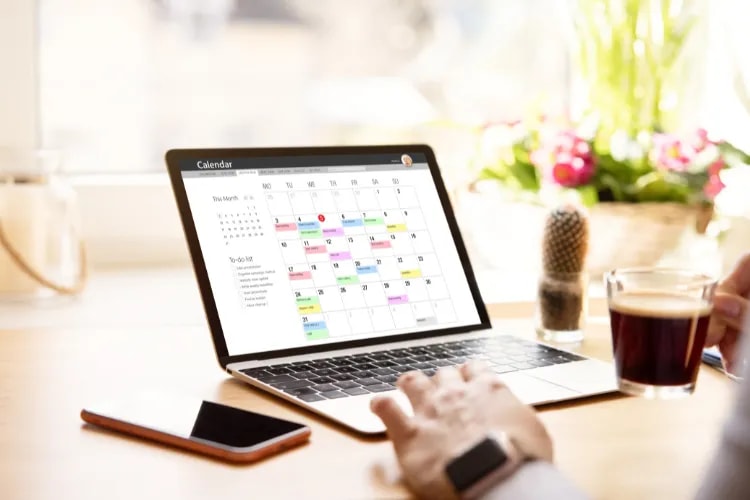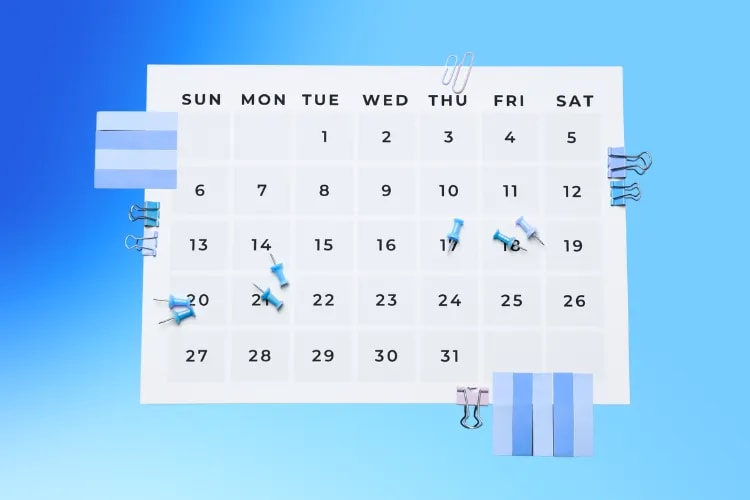
Event planning looks glamorous from the outside: packed venues, perfect decor, happy clients. Behind that? Spreadsheets, timelines, late-night problem-solving, and a planner who’s quietly running the show.
If that sounds like your kind of chaos, you’re in the right place.
The events industry isn’t going anywhere. In the U.S., employment for meeting, convention, and event planners is projected to keep growing faster than average, and live events drive massive economic value worldwide, according to the U.S. Bureau of Labor Statistics and the Events Industry Council. Companies, venues, and brands are investing in experiences again—and they need people who can actually deliver them.
This guide walks you step-by-step through how to get into event planning, even if you’re starting from scratch. You’ll learn what skills you need, how to get real experience, how to build a portfolio, and how to land paying clients or a full-time role.
Let’s turn your “I think I’d be good at this” into a real plan.
Before you dive into courses or buy a stack of planners, start with you. Great event planners aren’t just “organized people.” They’re part project manager, part therapist, part creative director.
Core skills you’ll lean on daily:
Organization and time management – juggling vendors, timelines, and a hundred moving parts without dropping the ball.
Communication – clear, calm, and direct with clients, suppliers, staff, and attendees.
Problem-solving – handling weather changes, late deliveries, or tech glitches in real time.
Creativity – designing experiences, not just schedules. Themes, layouts, engagement ideas.
People skills – staying professional under pressure and keeping clients feeling heard and safe.
The U.S. Bureau of Labor Statistics calls the role fast-paced and deadline-driven for a reason. You’re coordinating people, budgets, and expectations—often all at once.
The Loopyah Content Team shares expert insights, practical guides, and industry updates to help event organizers create unforgettable experiences and stay ahead in the event planning world.
Do a quick self-audit:
List your strengths. Where do you already shine? Maybe you’re the friend who organizes every trip or the one who keeps group projects on track.
List your gaps. Maybe you hate spreadsheets, or public speaking scares you. That’s fine. You just found your development plan.
Note what you actually enjoy. Do you love design and aesthetics? Negotiating deals? Solving logistics puzzles?
Next, think about the types of events that genuinely excite you:
Corporate: conferences, product launches, sales kickoffs, trade shows.
Social: birthdays, anniversaries, private parties, nonprofit galas.
Weddings: proposals, showers, rehearsal dinners, full wedding weekends.
Live entertainment: concerts, festivals, comedy nights, club nights.
If you’re unsure what type of events you’d enjoy planning, read through examples of different formats and experiences in our guide to experiential events. It will spark ideas.
You don’t need a specific degree to get into event planning—but you do need to understand how events actually work behind the scenes.
If you’re in school or considering it, relevant programs include:
Hospitality management
Event management or event production
Tourism, marketing, or communications
Industry certifications can also help you stand out once you have some experience:
CMP (Certified Meeting Professional) – strong for corporate and association planners.
DES (Digital Event Strategist) – if you want to work on hybrid/virtual strategies.
CSEP (Certified Special Events Professional) – focused on creative live experiences.
You don’t need any of these to start. See them as mid-term goals once you’ve tested that this career is for you.
Short-term learning is your friend when you’re new. Look for beginner-friendly courses on:
Planning timelines and run-of-show documents
Budgeting and vendor contracts
Event marketing and ticket sales
You’ll find solid intros on platforms like Coursera and Udemy. Don’t overthink it—pick one or two and complete them fully instead of hoarding half-finished courses.
Events change fast—AI tools, new formats, shifting attendee expectations. You’ll want a steady drip of insight.
Start with practical, tactic-heavy reads like:
Our breakdown of event management best practices for a full backstage look at how events really come together.
In-depth guides on event strategy, so you learn to think beyond decor and focus on outcomes.
Schedule an hour a week for learning. Treat it like client work. Because eventually, it will be.
You won’t get hired as a lead planner with zero events under your belt. The safest way in is to stack small, real-world reps as fast as you can.
Look for opportunities at:
Local festivals, sports events, and charity runs
University events or alumni gatherings
Nonprofit galas and fundraisers
You might be stuffing swag bags or checking tickets at first. That’s fine. Watch how the planner runs the room: where they stand, what they track, how they talk to vendors and deal with surprises.
Event agencies, venues, hotels, and nonprofits often take interns, especially around busy seasons. Your pitch is simple:
Show them you’re reliable (you show up on time).
Show them you’re curious (you ask smart questions).
Show them you’re willing to do unglamorous work (because that’s most of events).
If you’re a student, check if organizations like MPI or PCMA have student memberships or local chapter events where you can meet planners who hire interns.
Find local planners on LinkedIn or Instagram and send a short, respectful message:
“Hi [Name], I’m getting into event planning and I admire the work you do with [type of event]. I’d love to assist for free on an upcoming event—set-up, vendor coordination, guest check-in, anything you need. I’m mainly looking for experience and a chance to learn.”
You won’t get a yes every time. You don’t need a yes every time. A handful of “sure, come help” moments can give you enough experience and references to move forward.
As you help run more events, pay attention to the whole system: marketing, ticketing, staffing, budgeting. Our guide to event operations is a good companion while you’re learning on the job.
At some point, people will stop asking, “What courses have you taken?” and start asking, “Show me what you’ve done.” That’s where your portfolio comes in.
You don’t need dozens of events. You need a few solid, well-documented stories.
For each event—no matter how small—capture:
Basic details: date, size, type, location, client or organization (if allowed).
Your role: what you actually did, not just your job title.
Photos: before/after setups, key moments, layout shots. Get permissions where needed.
Results: ticket sales, funds raised, attendance vs. goal, notable feedback.
After each event, ask clients or supervisors for a short testimonial you can quote. Make it easy for them with a quick prompt or draft.
A strong case study can be just one page and follow this simple structure:
The challenge – What was the goal or problem? (e.g., “Boost attendance at a local food festival after two quiet years.”)
Your approach – What did you plan, coordinate, or change?
The results – What happened? Use numbers when you can.
Three to five strong case studies beat a huge photo gallery with no context.
You don’t need an expensive custom site on day one. Start with:
A basic website on WordPress or Wix with 3–5 project pages
A clear services page and one short “About” section
Contact form or simple “email me” call-to-action
If you’re not ready for a full site, a well-built LinkedIn profile with featured media and a portfolio folder in Google Drive is enough to start.
Most event work flows through people, not job boards. The earlier you build your network, the easier everything gets.
Look for meetups, venue open houses, workshops, and association events in your area. Your goal isn’t to collect business cards; it’s to have real conversations.
Ask people:
What types of events they run
What they wish they’d known when they started
If they ever take on assistants or interns
Organizations like ILEA (International Live Events Association) or MPI (Meeting Professionals International) offer:
Local chapter events and education
Mentorship and volunteering pathways
Exposure to suppliers, venues, and potential employers
You don’t have to join everything. Pick one community and actually participate instead of lurking.
Our Event Attendee Study found that 65% of event attendees discover events through social media posts or ads, and 56.4% rely on word of mouth from friends. Translation: your online presence and your network feed each other.
On LinkedIn, Instagram, or TikTok:
Share behind-the-scenes content from events you help with (within client permissions).
Talk about lessons learned—what went wrong and how you fixed it.
Connect with local venues, photographers, caterers, DJs, and planners.
Think of social as your ongoing portfolio and proof that you understand events, not just as a place to post pretty centerpieces.
Once you’ve touched a few event types, you’ll start to notice patterns: what drains you, what energizes you, and where people keep asking for your help.
That’s your cue to start narrowing your focus.
Ask yourself:
Who do I want to plan for? (Startups, nonprofits, couples, venues, artists?)
What problem am I solving? (Chaos, lack of time, poor attendance, boring experiences?)
You don’t have to lock in a niche forever. But a clear direction makes your marketing and networking much easier.
Common service types include:
Full-service planning – from concept to post-event wrap.
Partial planning – the client handles some pieces; you handle the rest.
Month-of or day-of coordination – tying everything together and running the event.
Package your services instead of listing random tasks. Clients should quickly understand what’s included and what’s not.
Your brand is more than a logo. It’s:
How you talk (formal, playful, bold, calm).
What you care about (sustainability, accessibility, high-end design, budget efficiency).
The vibe your site and socials give off (clean, edgy, romantic, corporate).
You don’t need a full brand book. You do need consistency so people recognize you across platforms.
Here’s the uncomfortable truth: being a great planner is only half the job. The other half is making sure people know you exist.
Keep it lean. Answer these questions:
Who am I targeting? (Be specific.)
What offers am I selling them? (Your service packages.)
Where will I show up consistently? (Pick 1–2 social platforms and 1 offline channel.)
What proof can I show? (Portfolio, testimonials, case studies.)
Then give yourself a realistic outreach target, like “Have 5 new conversations with potential clients or partners every week.”
Your digital basics should cover:
Website or landing page – with services, portfolio, testimonials, and a clear contact action. Our guide to creating an event landing page walks through the essentials.
Social content – show transformation: empty room vs. setup, before vs. after branding, chaotic process vs. smooth event day.
Email list – even a small list of past clients, vendors, and warm leads is worth nurturing with occasional updates and resources.
In our Event Attendee Study, 45.6% of ticket buyers said seeing friends attending in content makes them click “buy,” and 38.8% are influenced by positive comments or reviews. That’s your cue to:
Highlight attendee photos and stories (with permission).
Actively collect and share reviews on your site, socials, and Google Business Profile.
Your local ecosystem is full of people who can send you business: venues, photographers, DJs, florists, caterers, marketing agencies, coworking spaces.
Introduce yourself, tour venues, and offer to make their lives easier by being the reliable planner they recommend. Show them you understand logistics, not just aesthetics—our guide on event logistics is useful prep before those conversations.
You do not need a massive tech stack to start. But you do need tools that keep you organized and make you look professional to clients.
Pick one main hub for your tasks and timelines. Popular options:
Asana – great for multi-step projects, dependencies, and client visibility.
Trello – simple, visual boards that are perfect for solo planners and small teams.
Google Workspace – Docs for timelines, Sheets for budgets, Drive for shared files.
Pair that with one main communication channel (email plus maybe Slack or WhatsApp) and you’re set.
As you move from “helping at events” to owning them, you’ll want proper event software for registration, ticketing, seating, and on-site check-in.
With an all-in-one platform like our event software, you can:
Create event pages and sell tickets online without custom development.
Manage seating charts, ticket types, and promo codes.
Email attendees with reminders, updates, and post-event surveys.
That matters, because our data shows that 48% of attendees have abandoned checkout due to unexpected fees and 30% due to confusing seat maps. Using modern, transparent ticketing tools is part of delivering a great experience.
Your vendors—caterers, photographers, AV teams, florists, rentals—are part of your toolkit too. Treat them like partners, not just line items.
To manage budgets without losing your mind:
Start every project with a clear, shared budget doc (Google Sheets is fine).
Separate must-haves from nice-to-haves so you know where to cut if costs rise.
Track actual vs. planned spend as you go, not at the end.
If you’re running ticketed events yourself, tools like our ticket management guide can help you think through pricing, fees, and capacity from day one.
This is the unsexy part that saves you from nightmares later. If you’re serious about becoming an event planner—especially as a freelancer or business owner—you need basic protections in place.
Never start work without something in writing. Your contract with clients should cover:
Scope of work – what’s included, what’s not, and how changes are handled.
Payment terms – deposit, milestones, final payment, late fees.
Cancellation and force majeure – what happens if the client, venue, or world cancels.
Use a lawyer or at least a reputable template as a starting point, then adapt as you learn.
Depending on your location and business setup, you may need:
General liability insurance – covers property damage or injuries at events you manage.
Professional liability (errors and omissions) – covers claims about your work or advice.
Talk to a local insurance broker who understands small businesses and events. Don’t guess.
Your reputation is your biggest asset. Protect it by being:
Transparent – about pricing, markups, and what’s realistically possible.
Honest – no fake numbers, no fake scarcity, no ghosting when things go wrong.
Respectful of confidentiality – especially with corporate or high-profile clients.
The more you grow, the more these foundations matter.
Getting into event planning isn’t about magically landing a huge festival or luxury wedding on day one. It’s about stacking smart, deliberate steps.
Here’s your roadmap in plain language:
Assess your skills and interests – figure out what you’re good at and what you enjoy.
Learn the basics – through courses, blogs, and real-world observation.
Get hands-on – volunteer, intern, and assist planners as much as you can.
Build your portfolio – turn each event into a story with photos, numbers, and testimonials.
Network intentionally – online and offline, with planners, venues, and vendors.
Choose a niche – define who you serve and what services you offer.
Market yourself – show your work, ask for referrals, and keep conversations flowing.
Use the right tools – from planning software to ticketing and communication platforms.
Protect your business – with contracts, insurance, and ethical practices.
You don’t have to nail all nine steps at once. Pick the next two you can work on this month and move. Host a small paid workshop. Help a friend turn their idea into a real event. Shadow a local planner. Get your first case study.
There is real demand out there for planners who can blend creativity with execution. If you’re willing to learn, communicate clearly, and show up when things get messy, there’s room for you in this industry.
When you’re ready to level up how you plan, sell, and run your events, make sure your tools aren’t holding you back.









